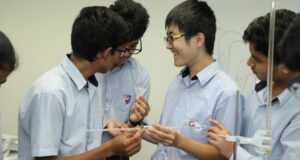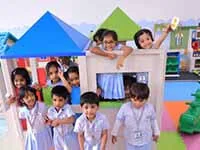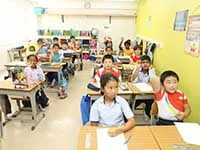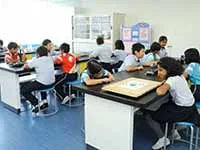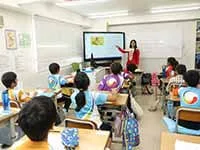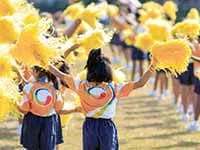Making the best secondary school choice for your child is an important choice that might have a big influence on their educational path and future possibilities. For children with foreign nationalities, the rights and rules are quite similar.
To make sure your child obtains the finest education possible in a hectic city like Tokyo, where educational possibilities are plentiful, it’s crucial to make informed decisions by abiding by all the rules.
This post will help you pick the Top Secondary School in Japan for your kid by explaining the value of secondary level education. Let us guide you through the structure of the Japanese educational system, the age criteria for entrance, the required topics, and more.
Why Is Senior High School Or Junior High School Important?
Secondary school is also known as junior high school in Japan. This grade education is a crucial time in a student’s academic career. It fills the gap between elementary school and high school education. The grade prepares pupils for the difficulties they will encounter in their last school years and afterward.
Junior high school is significant because it helps kids build strong academic foundations. The stage lets them acquire vital life skills and be ready for the demanding high school admission examinations that decide their future educational options. A great performance in these years can open doors to prominent high schools and colleges, laying the groundwork for a prosperous future.
Structure Of The Secondary Education System In Japan?
In Japan, there are three levels of secondary education:
● Junior high school or lower secondary.
● High school or upper secondary.
● Higher education or universities and vocational institutions.
The lower secondary education stage, which includes grades seven through nine, is the primary subject of this blog.
7 Important Things When Choosing the Best Secondary School in Tokyo – Parent’s Guidance
Take into account the following elements while choosing your child’s Top Secondary School in Tokyo:
● Location: To cut down on commute time, pick a school that is close to your home.
● Reputation: Research the school’s reputation among parents and kids as well as its academic success and instructor caliber.
● Education: Check if the school’s curriculum aligns with your child’s interests and long-term goals.
● Extracurricular Activities: Look into what extracurricular options are available to help your child develop their skills and interests outside the classroom.
● Class Size: Smaller classes frequently lead to more individualized attention and higher educational outcomes.
● Support Services: Check the school’s support services to see whether they are sufficient for pupils with special needs. Check if they provide services for those who require extra help.
● Parental Involvement: Consider how the school involves parents in the education and development of their children.
Age Requirements for Admission to the Top Middle School in Tokyo, Japan
Children in the Best Junior High School often start junior high school around the age of 12. The National Center Test for University Admissions (often referred to as the “Center Test”) is administered to elementary school students in grade six to decide where they will be placed in junior high school after considering secondary school age requirements. The outcome of this test, coupled with instructor suggestions, affects how the school assigns homework.
Compulsory Subjects To Be Studied In Junior High School In Tokyo, Japan And Language Of Instructions
The junior high school curricula in Tokyo are extensive and include a wide range of topics. The tuition at these educational institutions is free, although there are several additional costs that differ according to subjects and extracurricular activities. Some of the required Subjects in Secondary School are:
● Japanese Language: Learn Japanese to improve your ability to communicate in your mother tongue.
● Mathematics: Laying a mathematical basis.
● Science: An overview of fundamental scientific ideas.
● Social studies: Studying the geography, history, and culture of Japan.
● Physical Education: Promoting sportsmanship and physical fitness via physical education.
● Music and Arts: Fostering artistic expression via music and the arts.
● Foreign Language: Teaching students a foreign language, usually English.
Although the medium of teaching is mostly in Japanese, certain international schools in Tokyo for upper secondary education may offer bilingual or English immersion programs.
Read Also: self introduction in english for nursery students
Conclusion
Making the ideal senior high school choice for your child in Tokyo is a big decision that calls for careful consideration of many different aspects. Do not forget to consider the school’s location, standing, curriculum, extracurriculars, class size, support services, and parental participation. You can guarantee that your child obtains a great education that supports their objectives and aspirations by making an educated decision. If you are looking for the best Secondary School in Tokyo that fulfills all the things mentioned and discussed above, GIIS is the school you should explore. The school is best for your kid to reach undiscovered heights. For better information or admission details, you should explore our site or talk to our admin department.
Frequently Asked Questions
What Is The Secondary Education Curriculum In Japan?
Japanese language, mathematics, science, social studies, physical education, music, the arts, and a foreign language, usually English, are all part of the secondary education curriculum in Japan.
How Long Are Senior High Schools In Tokyo?
Junior high schools, commonly referred to as senior high schools, are for grades seven through nine in Tokyo. Usually, a grade corresponds to one school year.
How Many Years Is Senior High School In Japan?
Japan’s secondary education system lasts three years, from grades 7 to 9.
Do Japanese Go To School On Saturday?
Although some schools in Japan have courses on Saturdays, this is not a common practice. Depending on the school and locality, the timetable could change.
What Grade Is A 17-Year-Old In Japan?
In Japan, a 17-year-old student is generally in the second year of high school, which equates to grade 11. Japanese schools start in April and end in March. Therefore, children born between April 2 and April 1 of the following year will be in the same grade. Japanese students generally begin elementary school at age six and continue through several grades until they graduate at age 18.







